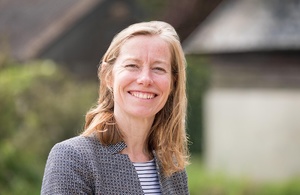Prime Minister’s statement to the House on COVID-19: 23 June 2020
Mr Speaker, before I begin, I am sure the whole House will join me in sending our deepest condolences to the families and friends of
James Furlong, Joe Ritchie-Bennett and David Wails,
who were brutally killed in Reading on Saturday.
To assault defenceless people in a park is not simply an act of wickedness but abject cowardice,
and we will never yield to those who would seek to destroy our way of life.
Mr Speaker, with permission I will update the House on the next steps in our plan to rebuild our economy and reopen our society,
while waging our struggle against Covid-19.
From the outset, we have trusted in the common sense and perseverance of the British people
and their response has more than justified our faith.
Since I set out our plan on the 11th May,
we have been clear that our cautious relaxation of the guidance is entirely conditional on our continued defeat of the virus.
In the first half of May, nearly 69,000 people tested positive for Covid-19 across the UK;
by the first half of June, that total had fallen by nearly 70 percent to just under 22,000.
The number of new infections is now declining by between 2 and 4 percent every day.
Four weeks ago, an average of 1 in 400 people in the community in England had COVID-19;
in the first half of June, this figure was 1 in 1,700.
We created a human shield around the NHS and in turn our doctors and nurses have protected us,
and together we have saved our hospitals from being overwhelmed.
On the 11th May, 1,073 people were admitted to hospital in England, Wales and Northern Ireland with Covid-19,
by 20th June, this had fallen by 74 per cent to 283.
This pandemic has inflicted permanent scars and we mourn everyone we have lost.
Measured by a seven-day rolling average, the number of daily deaths peaked at 943 on the 14th April,
on 11th May it was 476,
and yesterday, the rolling average stood at 130.
We have ordered over 2.2 billion items of protective equipment from UK based manufacturers, many of whose production lines have been called into being to serve this new demand –
and yesterday, we conducted or posted 139,659 tests, bringing the total to over 8 million.
And while we remain vigilant, we do not believe there is currently a risk of a second peak of infections that might overwhelm the NHS.
Taking everything together, we continue to meet our five tests
and the Chief Medical Officers of all four home nations have downgraded the UK’s Covid Alert Level from four to three,
meaning that we no longer face a virus spreading exponentially,
though it remains in general circulation.
The administrations in Scotland, Wales and Northern Ireland hold responsibility for their own lockdown restrictions
and they will respond to the united view of the Chief Medical Officers at their own pace, based on their own judgment,
but all parts of the UK are now travelling in the same direction and we will continue to work together to ensure that everyone in our country gets the support they need.
Thanks to our progress, we can now go further and safely ease the lockdown in England.
At every stage, caution will remain our watchword, and each step will be conditional and reversible.
Mr Speaker, given the significant fall in the prevalence of the virus, we can change the two-metre social distancing rule, from 4th July.
I know this rule effectively makes life impossible for large parts of our economy, even without other restrictions.
For example, it prevents all but a fraction of our hospitality industry from operating.
So that is why almost two weeks ago, I asked our experts to conduct a review and I will place a summary of their conclusions in the libraries of both Houses this week.
Where it is possible to keep 2 metres apart people should.
But where it is not, we will advise people to keep a social distance of ‘one metre plus’,
meaning they should remain one metre apart, while taking mitigations to reduce the risk of transmission.
We are today publishing guidance on how businesses can reduce the risk by taking certain steps to protect workers and customers.
These include, for instance, avoiding face-to-face seating by changing office layouts,
reducing the number of people in enclosed spaces,
improving ventilation,
using protective screens and face coverings,
closing non-essential social spaces,
providing hand sanitiser
and changing shift patterns so that staff work in set teams.
And of course, we already mandate face coverings on public transport.
Whilst the experts cannot give a precise assessment of how much the risk is reduced,
they judge these mitigations would make “1 metre plus” broadly equivalent to the risk at 2 metres if those mitigations are fully implemented.
Either will be acceptable and our guidance will change accordingly.
This vital change enables the next stage of our plan to ease the lockdown.
Mr Speaker, I am acutely conscious people will ask legitimate questions about why certain activities are allowed and others are not.
I must ask the House to understand that the virus has no interest in these debates.
Its only interest, its only ambition is to exploit any opportunities is to recapture ground that we might carelessly vacate.
There is one certainty: the fewer social contacts you have, the safer you will be.
My duty, our duty as the Government, is to guide the British people, balancing our overriding aim of controlling the virus against our natural desire to bring back normal life.
We cannot lift all the restrictions at once, so we have to make difficult judgments,
and every step is scrupulously weighed against the evidence.
Our principle is to trust the British public to use their common sense in the full knowledge of the risks,
remembering that the more we open up, the more vigilant we will need to be.
From now on we will ask people to follow guidance on social contact instead of legislation.
In that spirit we advise that from 4 July, two households of any size should be able to meet in any setting inside or out.
That does not mean they must always be the same two households.
It will be possible for instance to meet one set of grandparents one weekend, and the others the following weekend.
We are not recommending meetings of multiple households indoors because of the risk of creating greater chains of transmission.
Outside, the guidance remains that people from several households can meet in groups of up to six.
and it follows that two households can also meet, regardless of size.
Mr Speaker, I can tell the House that we will also re-open restaurants and pubs.
All hospitality indoors will be limited to table-service, and our guidance will encourage minimal staff and customer contact.
We will ask businesses to help NHS Test and Trace respond to any local outbreaks
by collecting contact details from customers, as happens in other countries,
and we will work with the sector to make this manageable.
Almost as eagerly awaited as a pint will be a haircut, particularly by me,
and so we will re-open hairdressers, with appropriate precautions, including the use of visors.
We also intend to allow some other close contact services, such as nail bars, to re-open as soon as we can, when we are confident they can operate in a Covid-secure way.
From 4th July, provided that no more than two households stay together,
people will be free to stay overnight in self-contained accommodation,
including hotels and bed & breakfasts,
as well as campsites as long as shared facilities are kept clean.
Most leisure facilities and tourist attractions will reopen if they can do so safely,
including outdoor gyms and playgrounds, cinemas, museums, galleries, theme parks and arcades
as well as libraries, social clubs and community centres.
“Close proximity” venues such as nightclubs, soft-play areas, indoor gyms, swimming pools and spas will need to remain closed for now, as will bowling alleys and water parks.
But my RHFs the Business and Culture Secretaries will establish taskforces with public health experts and these sectors to help them become Covid-secure and re-open as soon as possible.
We will also work with the arts industry on specific guidance to enable choirs, orchestras and theatres to resume live performances as soon as possible.
Recreation and sport will be allowed, but indoor facilities, including changing rooms and courts, will remain closed
and people should only play close contact team sports with members of their household.
Mr Speaker, I know that many have mourned the closure of places of worship,
and this year, Easter, Passover and Eid all occurred during the lockdown.
So I am delighted that places of worship will be able to reopen for prayer and services –
including weddings with a maximum of 30 people,
all subject to social distancing.
Meanwhile, our courts, probation services, police stations and other public services will increasingly resume face-to-face proceedings.
Wrap-around care for school age children and formal childcare will restart over the summer.
Primary and secondary education will recommence in September with full attendance
and those children who can already go to school should do so – because it is safe.
Mr Speaker, we will publish Covid-secure guidelines for every sector that is re-opening,
and slowly but surely, these measures will restore a sense of normality.
After the toughest restrictions in peacetime history,
we are now able to make life easier for people to see more of their friends and families
and to help businesses get back on their feet and get people back into work.
But the virus has not gone away.
We will continue to monitor the data with the Joint Biosecurity Centre and our ever more effective Test and Trace system.
And I must be clear to the House, that as we have seen in other countries,
there will be flare-ups for which local measures will be needed
and we will not hesitate to apply the brakes and re-introduce restrictions even at national level – if required.
So I urge everyone to stay alert, control the virus and save lives.
Let’s keep washing our hands,
staying 2 metres apart wherever feasible, and mitigating the risks at 1 metre where not,
avoiding public transport when possible, and wearing a mask when not,
getting tested immediately if we have symptoms,
and self-isolating if instructed by NHS Test and Trace.
Today, we can say that our long national hibernation is beginning to come to an end
and life is returning to our shops, streets and homes
and a new, but cautious, optimism is palpable.
But it would be all too easy for that frost to return
and that is why we will continue to trust in the common sense and the community spirit of the British people to follow this guidance,
to carry us through and see us to victory over this virus.
I commend Mr Speaker this Statement to the House.

